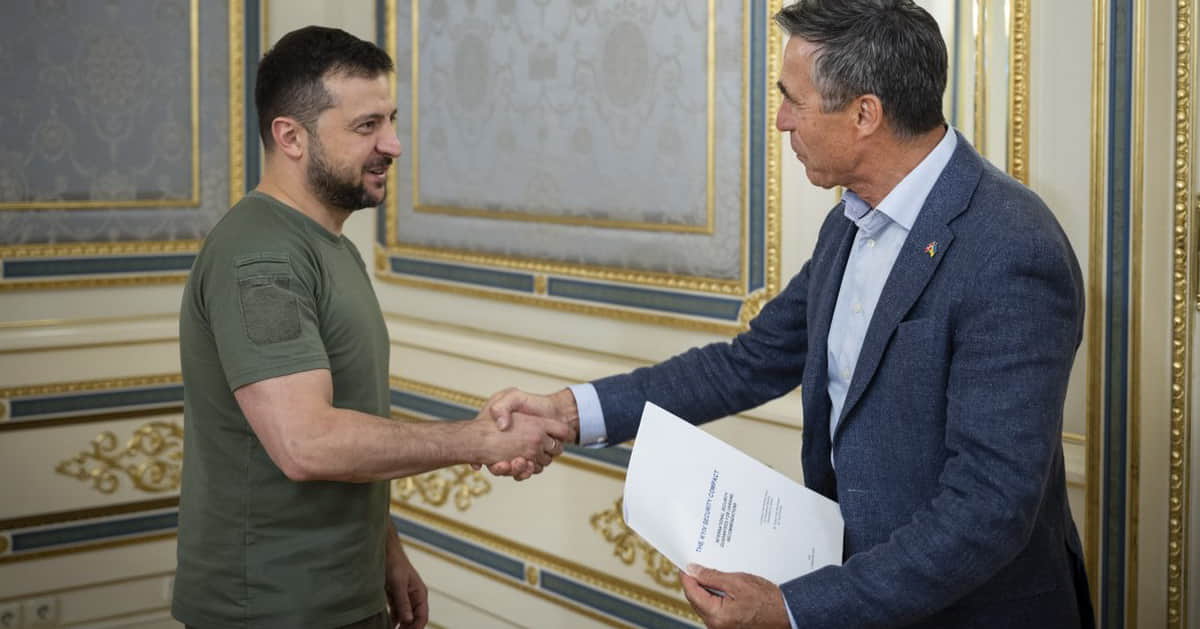What lies behind the idea of Ukraine partial NATO membership

The idea of Ukraine' partial NATO membership has gained popularity among opinion leaders. It suggests that security guarantees and the Alliance's "nuclear umbrella" should initially apply only to not occupied parts of Ukraine. The rest would receive these guarantees after de-occupation.
Read more about why this idea is dangerous in the article by the editor of European Pravda Sergiy Sydorenko: Ukraine is Proposed to Partially Join NATO. We Explain why It Is Dangerous. The concept of Ukraine's partial NATO membership is being advocated in the West exclusively by Ukraine's friends without harming it.
Former NATO Secretary-General Anders Fogh Rasmussen is the most active supporter, having lobbied for Kyiv's interests for many years. He was an adviser to Ukrainian leadership and currently collaborating with the head of the Office of the President, Andrii Yermak. Dutch Defence Minister Kajsa Ollongren also welcomes the idea of "partial NATO accession." Her pro-Ukrainian stance is evident, as seen in the decision to provide Ukrainian Armed Forces with Dutch F-16 fighter jets.
Support for this path has also been voiced by Western politicians and experts working on Ukraine's NATO integration for many years. Some Ukrainian politicians have recently started to see this idea more positive. Thanks to its introduction into the public sphere and discussion at the national newscast the idea has been supported by public.
A recent survey shows that among "hybrid" security guarantees options, "joining NATO partially" has the most supporters. This increases the risk that authorities might take this initiative seriously, claiming it aligns with the voters' wishes. Contrary to the desires of all parties involved, the consequences of this idea could be detrimental both to the Euro-Atlantic course and Ukraine as a whole.
Rasmussen believes that partial Ukraine's accession would alter the battlefield dynamics with the Russian army. According to him, Russia would be alarmed by the fact that half of Ukraine would be under the "NATO umbrella," making the deployment of military forces from other NATO countries unnecessary. "The absolute credibility of article 5 guarantees would deter Russia from mounting attacks inside the Ukrainian territory inside Nato and so free up Ukrainian forces to go to the frontline," said Rasmussen. The Alliance, however, is simply incapable of providing a "security umbrella" along the lines drawn at the level of some cities and villages.
It does not work that way. Perhaps the only potentially doable option is security guarantees for Ukraine without the territories Russia claims as "its own" and has "documentarily" annexed - Donetsk, Luhansk, Zaporizhzhia, Kherson Oblasts, and Crimea. This is nonsense and unacceptable!
Such a decision would imply that both Ukraine and its partners tacitly agree to have lost these regions, while NATO declares it will turn a blind eye to their occupation. Considering public sentiment and the Ukrainian rejection of territorial compromises, any Ukrainian political force accepting this would commit electoral suicide. Ratifying such an agreement in the Ukrainian parliament would not be an easy task.
Another, more apparent obstacle is that Russia currently shells the entire territory of Ukraine with rockets, drones, and more. Artillery attacks even reach areas like Dnipro or Sumy. Rasmussen believes that ratifying the NATO treaty for a "security umbrella" would force Russia to instantly cease these attacks.
However, this expectation is pretty dubious. No NATO leader currently seeks an open war with Putin, Ukraine will receive sympathy, more weapons, and possibly distant missile attacks from the US on certain non-nuclear facilities in Russia. But Ukraine won't receive real protection, and Russia's missile attacks will continue.
This would signify the destruction of the NATO foundation - its collective security system.
If you notice an error, select the required text and press Ctrl + Enter to report it to the editors.